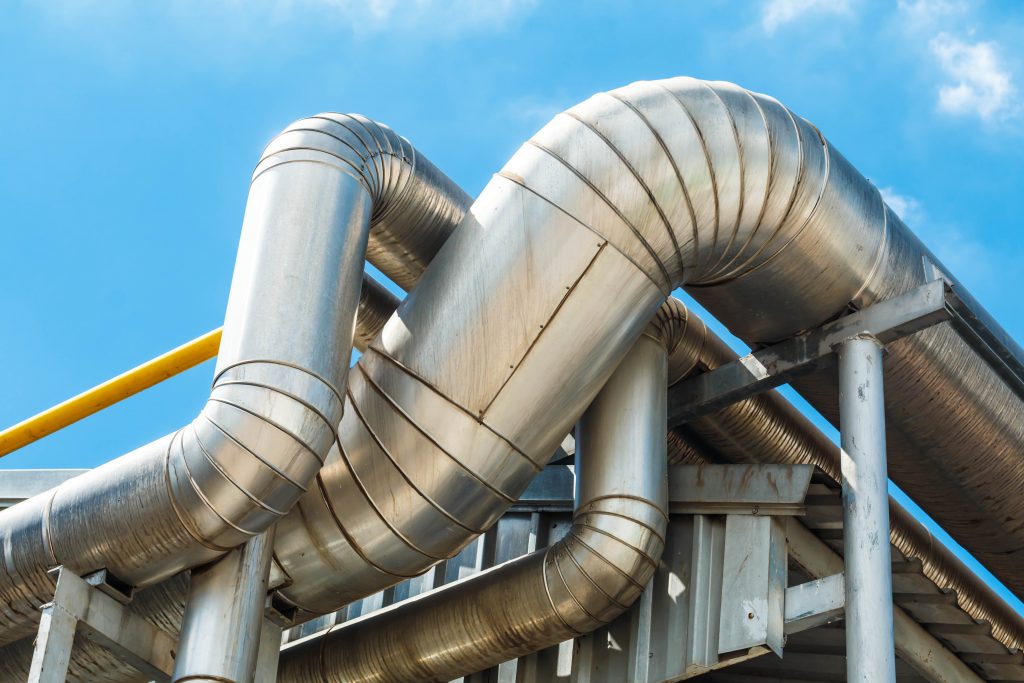This is the latest in a series of posts looking at the UK Government’s White Paper on the Future relationship between the UK and the EU. For a general overview of the proposals see our previous blog post.
This post looks specifically at the elements of the White Paper that relate to energy. The areas are considered at a UK level, but have relevance to Wales, particularly in terms of the security and affordability of energy in the future. 
Energy
According to figures from Energy UK, the UK’s energy industry supplies over 26 million homes and businesses with energy, provides employment for over 619,000 people and adds £83 billion to the economy each year. Individuals and businesses across the UK rely on a secure, affordable supply of gas and electricity. Figures from the UK Government’s Department of Business, Energy and Industrial Strategy show that in 2016 the EU supplied 12% of the UK’s gas and 5% of its electricity.
Over time, the EU and UK have worked together to develop a cross-border trade in energy. The UK has played a leading role in shaping the EU’s energy policies, and the current systems for trading gas and electricity between EU countries. For example, the UK played a leading role in developing the EU’s Internal Energy Market (IEM). Exiting the EU means that the UK’s place in the IEM is no longer certain, and also has the potential to affect the UK’s domestic energy arrangements.
In its White Paper on the future relationship between the UK and the EU, the UK Government proposes that its future plans will provide for socio-economic cooperation in areas where the UK and EU economies are closely linked, including energy. The paper says that the particularly close integration between EU Member States in these areas reflects their membership of the Single Market, and the UK recognises that it will not be possible to replicate this entirely once it has left the EU.
Electricity and Gas
The UK remains committed to delivering cost-effective, clean and secure energy supplies. The UK has worked closely with European partners to liberalise and open energy markets, with wide-ranging UK energy sector expertise being highly regarded across the EU.
UK Government White Paper
Single Electricity Market (SEM)
Northern Ireland and the Republic of Ireland have shared a wholesale electricity market since 2007, known as the Single Electricity Market (SEM). It is a single market with a common set of rules, and was established by parallel legislation in Westminster and the Irish Parliament, underpinned by a Memorandum of Understanding between the two governments.
The UK Government says it is committed to facilitating the continuation of the SEM between Northern Ireland and Ireland. It says that negotiators have made good progress on a legal provision to underpin the SEM in the Withdrawal Agreement, and that the UK will work with the EU to ensure that the SEM is maintained in any future scenario.
In its report on Brexit: Energy Security, the House of Lords European Union Committee describes the SEM as a key dividend of the peace process, reducing energy prices in both Northern Ireland and the Republic of Ireland, and helping to achieve decarbonisation targets.
Interconnectors
The White Paper says the UK is seeking broad energy cooperation with the EU, including arrangements for trade in electricity and gas, cooperation with EU agencies and bodies, and data sharing to facilitate market operations.
Trade in electricity takes place through interconnectors – the physical links that allow electricity to be moved between markets. There are currently three interconnectors between Great Britain and EU Member States – one to France, one to the Netherlands, and one to Ireland. There are others in development, for example with Belgium, Norway and Denmark.
In its report on Brexit: Energy Security, the House of Lords European Union Committee say that the existing UK-EU interconnectors benefit all parties by improving energy security, reducing costs, and facilitating decarbonisation. It calls for the UK Government to clarify as soon as possible what regulatory regime will apply to UK-EU interconnectors post-Brexit. This is in order to support the further development of the infrastructure, thus helping to maintain energy security and ensuring the UK meets its decarbonisation and international climate targets.
Options for a future energy relationship
The White Paper sets out the UK Government’s desire to explore options for the future energy relationship with the EU. It presents a number of possibilities. One option would be for the UK to leave the IEM. It says that in this case the UK would explore what would be needed to ensure trade over interconnectors would continue without an automatic capacity allocation via the IEM system. An alternative option would be for the UK to participate in the IEM to preserve the existing trading practices through interconnectors. The paper says that in this scenario the UK would need a common rulebook with the EU on the technical rules for electricity trading, such as the market coupling mechanism.
In its paper on Brexit and the future EU-UK energy relationship, Energy UK calls for the UK to maintain participation in the IEM for the benefit of UK and EU customers.
Technical and regulatory arrangements
The White Paper highlights advantages to close cooperation on technical and regulatory energy arrangements. It says the UK Government wants to explore with the EU the options for continued Transmission System Operator participation in the Inter-Transmission System Operator Compensation Mechanism, and continued membership of the European Networks of Transmission System Operators for Electricity (ENTSO-E) and Gas (ENTSO-G). It also says the UK is putting in place arrangements so that, when trading after exit, businesses will have certainty that they will not face substantially different requirements compared to their current obligations under the Regulation on Wholesale Energy Market Integrity and Transparency (REMIT). Energy UK says that the UK energy industry believes that the UK should maintain close regulatory alignment with the IEM moving forwards.
Civil Nuclear
The UK joined the European Atomic Energy Community (Euratom) in 1973. Since then, the UK’s agreements for safeguard monitoring with the International Atomic Energy Agency (IAEA) have been fundamentally underpinned by the UK’s membership of Euratom. One of Euratom’s roles is to implement safeguards on nuclear material across Euratom member states.
The White Paper says the UK Government will seek a close association with Euratom, and that this will be ‘a new relationship that is more comprehensive and broad than any existing agreement between Euratom and a third country’, and that would help ensure the UK’s standing as a ‘leading and responsible civil nuclear state is maintained’. It says this would be mutually beneficial for the UK and Euratom Community, due to a common interest in ensuring energy resilience and security within Europe.
The UK Government proposes the new relationship should be based on a comprehensive Nuclear Cooperation Agreement (NCA) between Euratom and the UK which should include:
- Establishing a cooperation mechanism between the UK safeguards regulator (the Office for Nuclear Regulation) and Euratom, enabling activity such as technical information exchanges, joint studies and consultation on regulatory or legislative changes;
- Provide for UK association with the Euratom Research and Training Programme;
- Ensure continuity of contractual arrangements for the supply of nuclear material (either by allowing for existing contracts to remain valid, or by providing for their ‘seamless re-approval’ prior to the UK’s exit;
- Minimise barriers and simplify export control arrangements in the trade and transfer of sensitive nuclear materials, equipment and technology between the UK and Euratom Community;
- Provide for technical cooperation on nuclear safety; and
- Continue UK co-operation and information sharing with the European Observatory on the Supply of Medical Radioisotopes.
The House of Lords Brexit: Energy Security report emphasises the importance of the UK Government replicating Euratom’s provisions by the date of departure, in order to avoid a situation where the UK could be unable to trade in nuclear goods and services.
European Parliament view
In March 2018, the European Parliament published its guidelines on the framework of the future EU-UK relationship. It suggests that third country agreements could be made in relation to energy, and says:
Such arrangements should respect the integrity of the internal energy market, contribute to energy security, sustainability and competitiveness and take account of interconnectors between the EU and the UK;
Expects the UK to comply with the highest nuclear safety, security and radiation protection standards, including for waste shipments and decomissioning.
European Commission
On 27 April 2018, the European Commission published a Notice to Stakeholders on the withdrawal of the UK and the IEM. It outlines a number of consequences of EU rules in energy market regulation no longer applying in the UK:
- Compensation between Transmission System Operators (TSOs): As the UK will be a ‘third country’ post-Brexit a transmission system use fee will need to be paid on all scheduled imports and exports of electricity. This applies to all third countries which have not adopted an agreement whereby it is applying EU law.
- Interconnectivity: EU gas and electricity market legislation sets out rules on the allocation of interconnection capacity and provides for mechanisms to facilitate their implementation. As of the withdrawal date, UK based operators will cease to participate in the single allocation platform for interconnection capacity, the European balancing platforms and the single day-ahead and intraday coupling. UK based nominated electricity market operators (NEMOs) will become third country operators and will no longer be entitled to carry out market coupling services in the EU.
- Electricity and Gas Trading: Market participants from third countries are required to register with the national energy regulatory authority of a Member State where they are active.
- Investments in transmission system operators: TSOs need to be certified in order to operate. The certification of a TSO which is controlled by a person or persons from a third country is subject to specific rules.
The next two blog posts in the series will look at what the proposals in the White Paper might mean for transport, and fisheries in Wales.
Article by Chloe Corbyn, National Assembly for Wales Research Service






